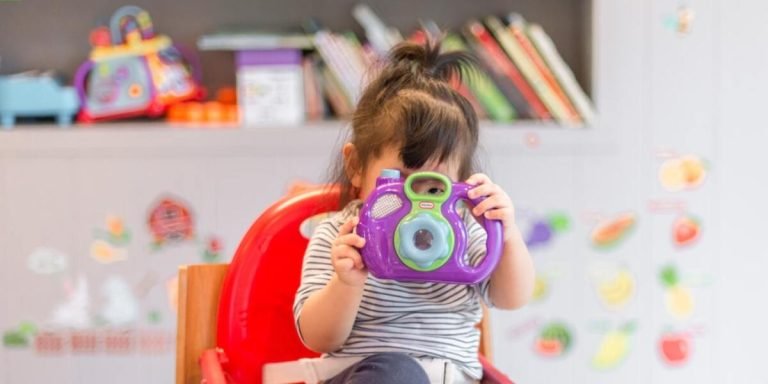Development Skills Every Child Needs for a Successful Future
Understanding the right “development skills” for a child can serve as the blueprint to forging an excellent future. In essence, these are what primarily shape your little one’s ability not only to adapt but also thrive in their social environment. These crucial abilities help with everything from problem-solving and decision-making to communicating effectively and handling emotional reactions.
This blog post aims at helping parents identify some prominent developmental skills every child should be equipped with for a successful future. Early childhood education plays an integral role here, fostering essential qualities such as resilience and initiative that could impact children’s lifelong trajectory towards success profoundly.
Did you know?
According to a study by APA, children who partake in regular physical activity not only improve their overall health but also exhibit enhanced cognitive functioning that leads to improved academic performance.
Exploring the Core Development Skills Cultivated Through Early Childhood Education
As we delve into early childhood education’s integral role in fostering development skills, it becomes imperative to highlight how technology integration is reshaping pedagogical approaches. In 2023, more than ever, educators are harnessing digital tools not merely for their novelty but because of their significant impact on learning outcomes.
Technology has become ubiquitous; hence technology literacy is no longer an elective but a necessity. By incorporation technological resources in formative educational stages ensure students do not only consume technology passively; they also learn to interact with it purposefully towards achieving specific goals or solving problems—skills very much needed in today’s dynamic world.
Yet just like any tool used in teaching-learning processes, thoughtful implementation matters greatly when integrating technologies within the early years’ curricula lest they harm rather than enhance young learners’ experiences. With mindful utilization of available tech devices tailored according to individual needs and aged-appropriate parameters can lead us down an incredible path where our children aren’t merely surviving but thriving through this age of information.
Nurturing Cognitive Abilities in Preschoolers
Nurturing cognitive abilities in preschoolers is an integral part of early childhood education. Understanding that the first few years of a child’s life are crucial for brain development, modern educators strive to implement strategies that strengthen and stimulate children’s intellectual growth.
The process begins by identifying different developmental skills kids typically learn during their early years. Cognitive abilities like problem-solving and understanding cause-and-effect relationships constitute some key areas focused on extensively through carefully designed activities.
One successful method involves integrating technology into teaching methods which broadens learning experiences while keeping pace with current times – 2023 is notably characterized as a digital era where tech integration significantly impacts education systems globally.
Interactive games, apps, or other educational software offer fun ways for children to explore new concepts while building critical thinking skills simultaneously. For example, simple computer puzzles can help reinforce pattern recognition and improve memory retention among preschoolers.
Furthermore, the introduction to basic programming helps evolve logical reasoning capacities along with enhancing creativity from an early age itself.
Enhancing Physical Coordination and Motor Skills
In the early years, children are naturally curious and inquisitive. They eagerly explore their environment through play, which is instrumental in enhancing physical coordination and motor skills – crucial development skills that serve as foundational blocks for higher learning.
Technology integration can substantially support this creative exploration while refining key development skills. In 2023’s educational setting, numerous tech tools targeted at Early Childhood Education have surfaced to promote gross and fine motor skill progression.
When we talk about ‘gross’ motor skills, it refers to large muscle movements like running or jumping. Tech-based fitness applications with animation-guided exercises encourage active participation from youngsters by making physical activities excitingly interactive. Virtual reality games requiring bodily movement also offer a fun way of augmenting these pivotal abilities.
On the other hand,’fine’ motor ability encapsulates delicate actions such as holding a pencil or buttoning shirts – tasks demanding precision control over small muscles mainly in hands and fingers. Interactive touch-screen devices come into action here; apps designed specifically for pre-schoolers bolster finger dexterity via engaging swipe-base task completion games.
These technology-driven approaches provide notable benefits beyond mere entertainment.
1) Motivation: The range of colors used stimulates visual senses keeping kids engrossed longer.
2) Independent Learning: As they manipulate devices on their own pace, self-directed learning gets encouraged fostering independent problem-solving capability.
Social-Emotional Growth Milestones Achieved in Early Learning Settings
In the increasingly digital landscape of 2023, early childhood education has seen a substantial evolution. The integration of technology in educational settings is now more than merely introducing children to gadgets and screens; it’s about fostering development skills crucial for their overall growth.
More importantly, educators skillfully utilize various technological tools as means to enhance not only cognitive but also socio-emotional progressions amongst young learners today. Be it through interactive storytelling apps or collaborative projects done on tablets – such activities promote active engagement while simultaneously honing important interpersonal abilities like communication, cooperation and conflict resolution.
Children immersed in this melding space between human interaction and digital interfaces learn how to navigate both worlds successfully—an essential advantage needed by members of Generation Z who will inevitably inherit a tech-driven world.
Fostering Communication and Interpersonal Skills
In the digital age of 2023, early childhood education has immensely transformed due to technological integration. It’s not just about imparting formal knowledge but also nurturing development skills that help mold a child into a well-rounded individual.
One unparalleled aspect is fostering communication and interpersonal skills in children right from their tender years. These are among the key social-emotional growth milestones achieved in early learning settings which typically revolve around interaction with peers, educators, or even educational technology.
Technology plays an instrumental role here. Kids today have access to smart devices and interactive apps at much younger ages than ever before – these could be leveraged as tools for facilitating better communication abilities.
For instance, numerous educational applications specially designed for kids incorporate real-life scenarios primarily aimed at teaching them how to communicate effectively. They immerse youngsters in situations where they need to use language accurately & appropriately while interacting digitally within those environments; thereby cultivating their verbal expression capabilities along with boosting emotional intelligence by understanding virtual characters’ feelings.
Moreover, tech-based group activities can significantly enhance interpersonal skills amongst young learners too – whether it’s through collaborative projects on shared platforms or multiplayer games requiring teamwork & cooperation; such innovative methods foster empathy towards mates thereby instilling valuable lifelong lessons pertinent to respect diversity and build healthy relationships.
Building Emotional Intelligence and Resilience among Young Children
In the modern age, technology integration in education is a game-changer. Alongside fostering intellectual development, it can significantly contribute to building emotional intelligence and resilience among young children – two crucial developmental skills.
Through well-strategized tech-enabled interactions or digital games, schools can seamlessly educate children about recognizing feelings – both their own and others’. This way, kids learn empathy at an early phase of life which boosts their social-emotional understanding.
Indeed, resilience underpins success throughout life’s journey. In early childhood education settings utilizing technology helps construct this essential trait within youngsters by exposing them to mild challenges in interactive learning modules which they overcome thereby naturally enhancing their problem-solving technique as well as patience level.
Moreover incorporating structured online group activities foster teamwork from a very young age where students learn cooperation & negotiation- precious lifelong skillsets! They understand that everyone’s role matters hence increasing mutual respect amongst peers.
Furthermore encouraging positive digital citizenship habits imbibe ethical values forming the foundation of moral growth alongside elevating security awareness levels safeguarding our future citizens’ virtual presence upholding safety above all!
The Role of Creative Play in Advancing Childhood Developmental Competencies
In the context of early childhood education, creative play is not just an activity for leisure; it holds significant relevance in fostering development skills essential to a child’s growth. Akin to this concept is technology integration which can amplify the benefits and improve learning outcomes. Recent research underpins that children learn better when they are actively engaged, discover their environment at their pace and use creativity during problem-solving situations.
The advent of 2023 brings about advanced technologies like Augmented Reality (AR), Virtual Reality (VR) and cloud-based educational apps that can be seamlessly integrated into a child’s playtime regime – transforming it into an enriched learning experience. These technological tools embody elements like imaginative role-plays or building blocks games, thus engendering cognitive abilities such as critical thinking, communication capability and decision-making prowess even from such tender ages.
It has been widely observed how kids involved in tech-integrated creative activities exhibit improved developmental competencies compared to those exposed only to traditional methods of schooling. The amalgamation creates a balance between physical tactile stimulation with multi-dimensional digital representation helping them understand abstract concepts more easily. Furthermore, utilizing these aptly designed gaming applications also aids in enhancing fine motor skills while simultaneously nurturing curiosity towards STEM fields early on.
These advantages affirm that evolving technology combined with creative play definitely plays a crucial part in advancing childhood development competence.
Stimulating Imagination and Creativity in Educational Playtime
Educational playtime offers more than just fun for children. It’s a crucial component of their learning journey, fostering creativity and stimulating imagination to enhance development skills.
Maximize the benefits of early childhood education in 2023 by mindfully integrating technology tools within the play process through various strategies.
1. Incorporate interactive tech toys: Toy manufacturers are increasingly creating intelligent options like programmable robots and digital puzzles that transform simple games into powerful educational experiences.
2. Optimize game-based Learning Apps: Digital platforms offer numerous apps designed with engaging gameplay elements such as storytelling or problem solving quests that not only keep young minds occupied but also encourage skill-building connected with critical thinking, communication abilities etc., simultaneously supporting curriculum content reinforcement.
3.Encourage Augmented Reality Experiences: AR technologies present opportunities to create immersive environments where learners can interactively explore concepts first-hand – fostering curiosity while facilitating deeper understanding.
4.Adopt Interactive eBooks : These e-books go beyond mere text by incorporating features such as animations or sound effects – making reading an entertaining activity which potentially enhances language acquisition plus cognitive growth concurrently.
Connecting imaginative activities alongside technological resources promotes holistic development amid kids? They get exposed towards practical life scenarios via simulations; they learn how actions lead toward consequences while playing decision-making games; collaboration gets encouraged when multiplayer online games become part of regular instruction sessions putting teamwork lessons practically into action!
Integrating Sensory Activities to Support Holistic Child Development
As we further immerse ourselves in the busy world of 2023, it’s crucial to incorporate sensory activities into early childhood education. This integration is fundamental for enhancing developmental skills and encouraging a more holistic approach to child growth.
Sensory play provides an enriching environment that stimulates the five senses – touch, smell, taste, sight, and hearing – beyond mere amusement. Let’s explore how to incorporate technology into these activities.
1) Digital Touch Boards: A leap from traditional learning methods; digital interactive boards encourage tactile participation helping children experience varied sensations while boosting cognitive abilities.
2) Virtual Reality: Imagine studying biology through smelling flowers or exploring marine life by touching virtual water textures? VR makes this possible while contributing significantly towards better comprehension among kids.
3) Augmented Reality Books: Standard picture books are now enhanced with augmented reality features like sound clips or animated characters – providing multisensorial stimulation on one platform.
Conclusion
In conclusion, nurturing development skills in children is not just an option but a necessity for preparing them for their future roles. These skills form the building blocks that help children confront challenges head-on while fostering problem-solving and decision-making capabilities. Remember, it’s never too early or too late to start honing these abilities.
We encourage you to continue delving deeper into this critical aspect of childhood education by exploring more articles on our website. From practical advice and strategies to supportive materials aimed at both parents and educators – we’ve got you covered every step of the way as you embark on this incredibly rewarding journey towards shaping successful futures!







